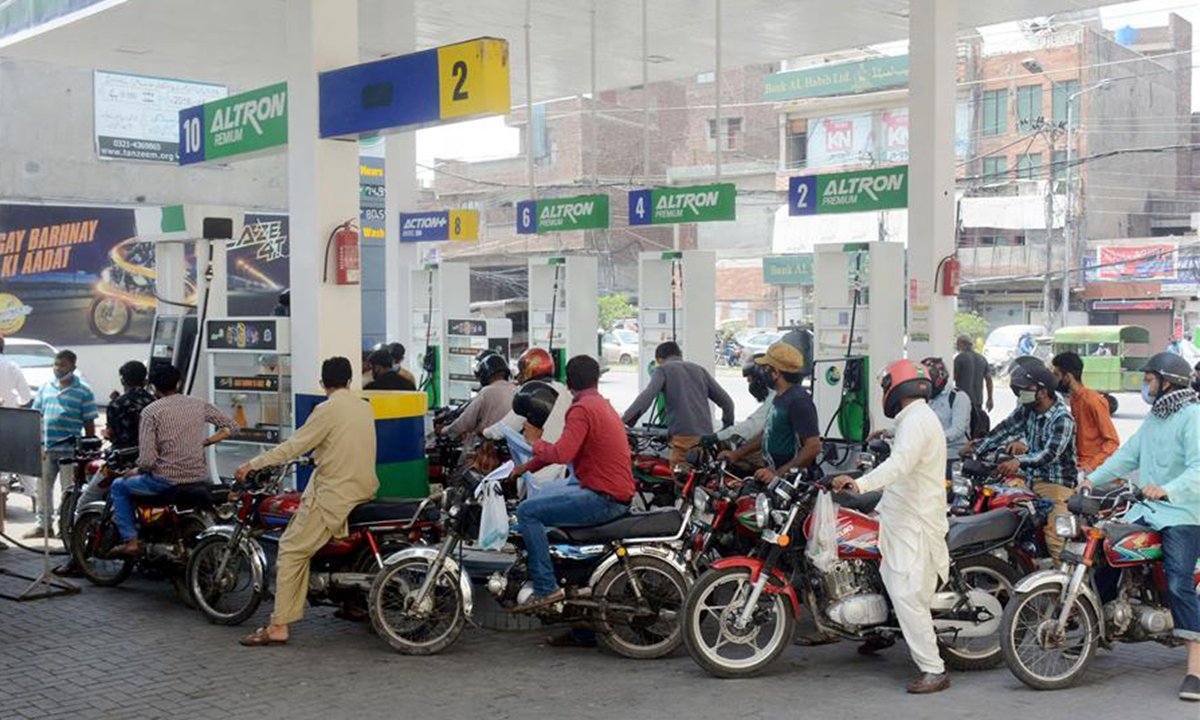The government’s decision to block roads to deter the Pakistan Tehreek-e-Insaf (PTI) workers’ march towards Islamabad is causing significant disruptions to the fuel supply chain, raising the risk of shortages in Lahore and Rawalpindi.
Khawaja Atif, Secretary of the Petroleum Dealers Association, warned of potential shortages, stating, “There is a chance of shortage of petroleum products in Lahore and across Punjab. Petrol stock is low at some petrol pumps in Lahore but has not run out yet.” This warning comes as citizens already face restricted movement due to roadblocks, compounding the financial impact of the ongoing protest, which Finance Minister Muhammad Aurangzeb estimates costs the country Rs190 billion per day.
Atif highlighted that Lahore’s daily petroleum consumption exceeds five million liters, while Punjab’s overall consumption is around 50 million liters. He urged the government to reopen roads to restore the fuel supply, warning of serious consequences if the situation persists. The Lahore division, a major hub for economic activity, could see adverse effects on essential services and daily operations if fuel supplies are not replenished.
In Rawalpindi, Chaudhry Zafar Elahi, President of the Petroleum Dealers Association North, expressed concern over dwindling petrol stocks at filling stations due to road closures. He noted that petrol pumps typically have reserves for three to four days, but the situation has worsened with minimal oil supply over the past three days. Elahi called for roads to be opened for a few hours daily to ensure fuel delivery, warning that police vehicles and other transport could face shortages.
Meanwhile, in Islamabad, the epicenter of the PTI protest, the situation remains stable. Raja Waseem, District President of the Petroleum Dealers Association, reported minimal fuel sales due to non-existent traffic. He assured that petrol is currently available but cautioned that increased demand could create issues. However, no new fuel supply is being provided to pumps from the Islamabad depot due to road closures.
The Oil Tanker Contractors Association reported that petrol and diesel supply has been affected in Islamabad, Gilgit, and Kohala, with thousands of tankers waiting for roads to reopen. There has been no supply to Gujranwala, Jhelum, Sialkot, and Kharian for the past three days, leading to fuel stations running out of petrol in several cities.
In response to the fuel shortage concerns, the Oil and Regulatory Authority (Ogra) assured that it is in contact with all stakeholders and taking measures to improve supply. The Ministry of Energy (Petroleum Division) directed district administrations in Islamabad, Rawalpindi, and Lahore to devise a comprehensive plan for uninterrupted petroleum supply amid the lockdown.
The Oil Companies Advisory Council (OCAC) also urged the Punjab administration and law enforcement agencies to provide safe routes for oil tankers to prevent shortages. In a letter to the Punjab chief secretary and police inspector generals, the OCAC highlighted the deteriorating situation due to highway closures, which severely delay fuel transportation and pose a risk of stock depletion.












